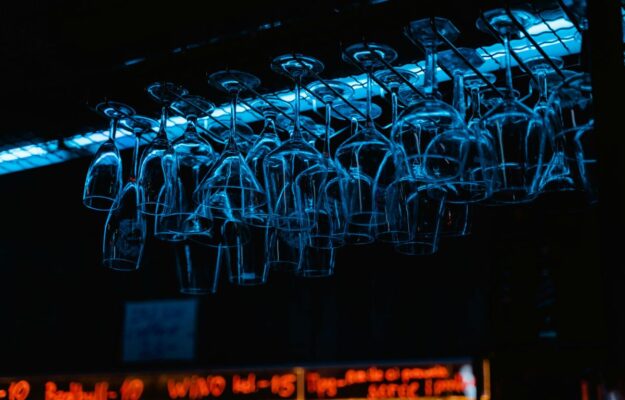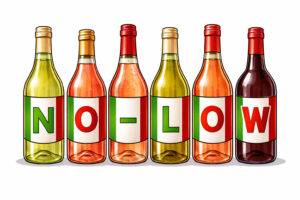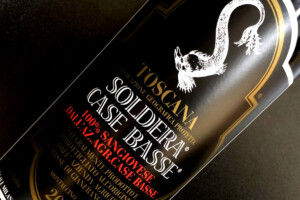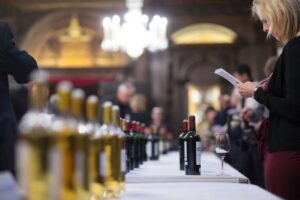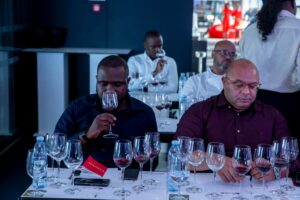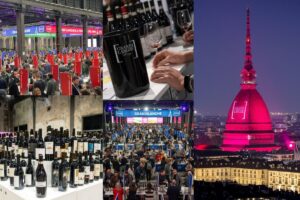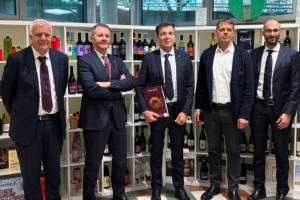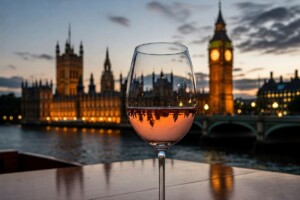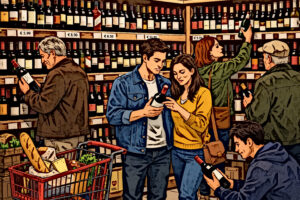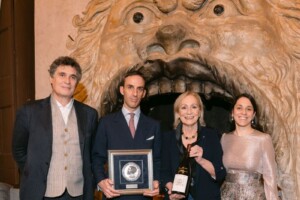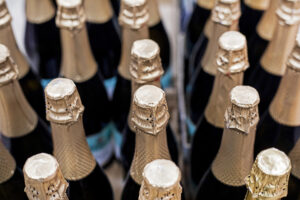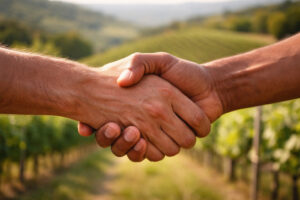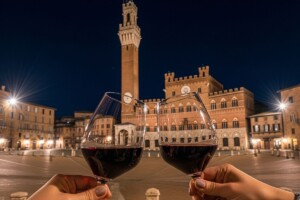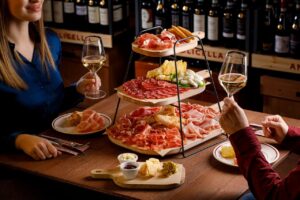They are young and prepared. They have clear ideas, and have breathed and lived in the world of wine. And they look to the aspects of the future, as the “no-alcohol wines matter”, without the paludaments, marking the ongoing discussion in the industry, and without prejudices, with the gaze of a generation looking at wine concretely, but with respect. A growing category, that of no-alcohol wines, which represents a challenge, and, in the meantime, an opportunity, in their vision, because it replies to the evolution of consumers’ trends, and it offers a new way to involve health-conscious Gen Z and Millenials. Luigi di Majo, supporting his father Alessio di Majo guiding the family wine company, Di Majo Norante, in Molise, and Leonardo Moretti Polegato, son of Giancarlo Moretti Polegato, at the top of Villa Sandi, one of the most important realities in the world of Prosecco, togetheter with Alojz Felix Jermann, sommelier and wine communicator, talked about it at “Wine2Wine”, the business forum of Vinitaly, which was held in the last days in Verona.
“We agree about the fact that no-alcohol wines represent a possible initial approach for consumers who are willing to discover wine. Gen Z and Millenials - Alojz Felix Jermann explained – have different habits and consumption ideas, they have many options, and alcohol is not always amongst these. For this reason, no-alcohol wines can be a valid alternative because they allow to “contaminate” them in this world positively, and open them this way, because in the future, it is possible that they will want to know the great Italian wines of excellence”.
The pinpointed priority is that of improving the quality of no-alcohol wines, and therefore research is the starting point, as a group of Italian companies is doing in collaboration with an other research team. “In this moment - Luigi di Majo Norante explains – we don’t produce no-alcohol wine (however, it is not still possible in Italy, due to the absence of a specific legislation, but it is in countries such as Germany, France and Spain, as established by the European legislation on the subject, ed), but we are doing research, aiming to find the best technologies for the dealcoholization, the best grapes’ mixtures, and productions in order to come up with a qualitative no-alcohol wine with similar olfactory and tasting characteristics to those of a traditional wine”.
In the same research field, also Villa Sandi is involved, which already produces a “zero-alcohol wine”, therefore not a no-alcohol wine, starting from a must basis, with “La Gioiosa” trademark, brand owned by the same Venetian winery. “In this moment, due to the limits imposed by the law - Leonardo Moretti Polegato explains - we are not experimenting in Italy, but in Germany and Spain, and we hope that in the future we can come to a technological development also in Italy. Let’s think to all the licenses, that, in this moment, are obtained by German and Spanish companies, when, also in Italy, we have the top of the line of technological industry”.
In any case, the so-called “No-Low” could represent, as suggested by most parts, the entry wines for a wide category of consumer profiles, who, for all kind of reasons, do not approach wine (and alcohol). And also for those people, who think that for well-known brands, the production of this typology would represent an offense, a shadow over the brand, the “guys” replied reasonably: ”The techniques that are available now – still explains Leonardo Moretti Polegato, who in the company is responsible for the development of new projects about sustainability, renewable energies, and new technologies, including “No e Low alcohol” wines – derive mostly by other types of dealcoholization, especially from that of the beer, that need to be adapted to wine for the retrieval of aromas. Beer industry was the first industry to invest in this field seriously, understanding the space that was opened on the market. We hope, that in the future, with a rhythm of different investments, ad hoc and specific technologies will begin to be developed for the world of wine, allowing us to reach higher qualitative levels”. And, with regard to the possibilities of an increase (also in Italy) of no-alcohol wines, the two young wine producers are sure, that, when reaching good qualitative standards, many more brands will decide to expand their range of products. “Beer industry began more than 10 years ago to make experiments on non-alcoholic products - Luigi di Majo continues – and, in this moment, after huge investments, it reached excellent results coming to products having almost the same characteristics of a traditional beer. On the contrary, wine stayed behind this no-alcohol segment: creating an alternative to beer, cocktail, fermented teas would open this market size to wine, which, at the moment, is taken by others”.
Currently, producing these wines means go abroad to dealcoholize, with a very high cost, not only in economic terms, but also in environmental terms, because it implies livening the masses up, bringing them elsewhere, working them, and then bringing them back. Therefore, it is clear that it’s desirable that the law changes for the supporters of this type of production. “It is important – concluded Leonardo Moretti Polegato – that this field is regulated correctly in a sector, that, in the years, thanks to regulations, managed to survive very important crisis. But, it is also necessary to understand that the world of wine needs young people to be approached to it, increase the touchpoints with those people, who tend to drink only in the two days of the weekend, while during the other days, they drink water or some soft drinks. Therefore, no-alcohol wines could also be functional, and increase the visibility of brands famous for the production of “traditional” wines, also in situations in which alcoholic drinks are not consumed. By looking at the direction taken by most countries, we should try to ensure a market share also to Italy in this growing sector”. “In the current situation, - Luigi di Majo Norante underlined – companies are unable to produce no-alcohol wines in Italy. Therefore, they are forced to produce it abroad in order to support an increasing demand. In France, Spain, Germany, and the UK the regulation about no-alcohol wines is less restrictive. For these reasons, wine producers of those countries are favored managing to produce without too many obstacles, while, in Italy, managing the transportation of wine masses outside the boundaries is not so easy logistically. Someone ,who is unfavorable, raises the possibility that only big groups can dealcoholize, since providing oneself with a dedicated plant is extremely burdensome. But, it’s not that way. For example, in Germany, and in Spain, specializing centers for the dealcoholization are being created, which could be useful for various levels of volume for big, small and medium producers”.
Copyright © 2000/2026
Contatti: info@winenews.it
Seguici anche su Twitter: @WineNewsIt
Seguici anche su Facebook: @winenewsit
Questo articolo è tratto dall'archivio di WineNews - Tutti i diritti riservati - Copyright © 2000/2026










